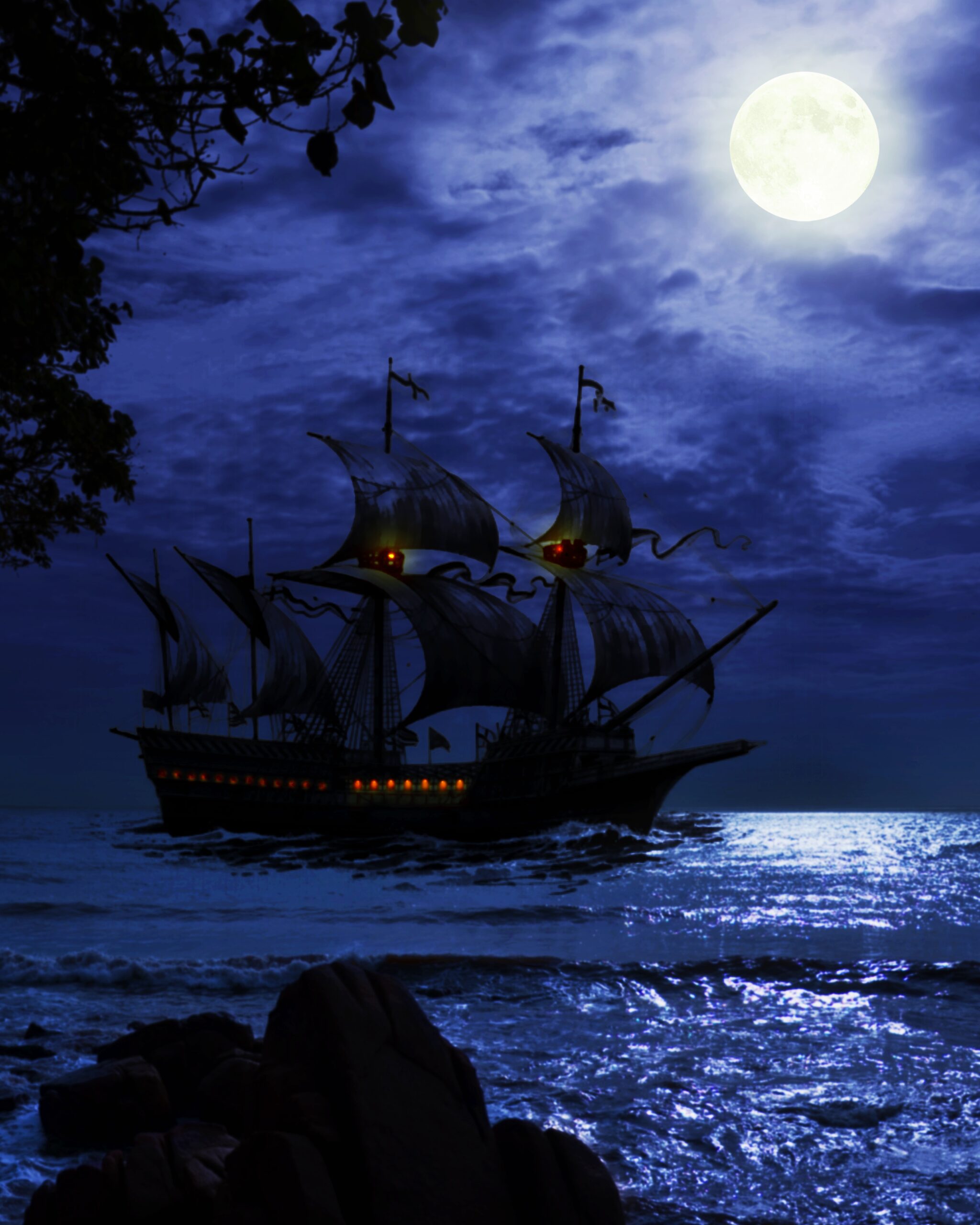Stories about pirates are well integrated into our collective culture. We have been both fascinated and entertained by them ever since the first publication of the book, A General History of The Pyrates, by Captain Charles Johnson came out in 1724. But during the almost 300 years since then these stories have been embellished and re-woven into, in many cases, conflicting and often outlandish tales about who these pirates were and what they did. This has resulted in conventional wisdom regarding well known names, such as Blackbeard and Anne Bonny, being so off the mark as to strain credibility. Curious about the actual lives, and more importantly to me, the motivations of these colorful characters, in 2012 I began an extensive research project into the actual history of the pirates. While the research is still ongoing, I’m sharing what I have learned through a series of books which I am calling The Pirate Project.
The pirate project is all about the
English pirates in the Caribbean and North America. My research has
uncovered the circumstances that created piracy in the first place,
the reasons that motivated people to become pirates, and the
importance of piracy to the developing American colonies leading up
to the American revolution. The project is broken down into three
parts.
Part 1: The Pirates You Thought You Knew
This section examines the actual lives of the well known golden age pirates of the Caribbean and is based on historical research rather than conventional wisdom. These are being presented as a series of novels, Real Pirate Stories, which separate fact from three centuries of embellishment of stories, many of which were not quite accurate in the first place. I have taken license to infer the motivations of these colorful characters from the facts of their lives, and the story lines I’ve created both fit and explain those facts. As a result, these novels can then be considered to be the ‘real’ stories of each of the pirates. While these stories may differ significantly from what may be currently ‘known’ about them, they are equally fascinating and more likely to be closer to the actual truth.
Part 2: Bahamas Pirates
Following the golden age of piracy in the early 1720s, pirates became vital to the developing American colonies as the Hanoverian Kings George attempted to clamp down on the freewheeling attitudes and activities that had been permitted by the Stuart Kings and Queens. Competitively priced goods plundered from Spanish merchants were sold in American port cities, and fast ships smuggled in rum and molasses from French Martinique, even while Britain and France were at war. Bahamas pirates explores the dependency of the colonies up to and through the American revolution and is revealed in a series of books seen through the eyes of the fictitious protagonists Jack Read, son of Mary Read and Jack Rackham, and Mary Burleigh, daughter of Anne Bonny.
Part 3: The Politics of Piracy
Piracy in the New World was supported
by English monarchs from Elizabeth 1st to Queen Anne because it
furthered national interests. Privateers, directly commissioned by
the crown, enabled England to both harass the dominant European
powers at the time while at the same time bringing in considerable
wealth. Even during those times where there was no declared war,
English pirates continued to attack Spanish shipping and traded the
goods in colonial ports while officials turned a blind eye to the
obvious contraband.
There was tremendous controversy in England when George 1st ascended to the throne following the death of Queen Anne. A group called the Jacobites felt that James Stuart was the rightful king, and they had strong support in the colonies because King George had officially declared the pirates to be outlaws. Archibald Hamilton, the governor of Jamaica, attempted to raise a navy of pirate ships, which was to be based out of Bermuda, to attack Britain in support in the Jacobite cause.
While the pirates generally supported the return of the Stuart line, only a few of them were actually politically inclined. In most cases, their motivation was to preserve the lifestyle that was now being suppressed by the Royal Navy.
